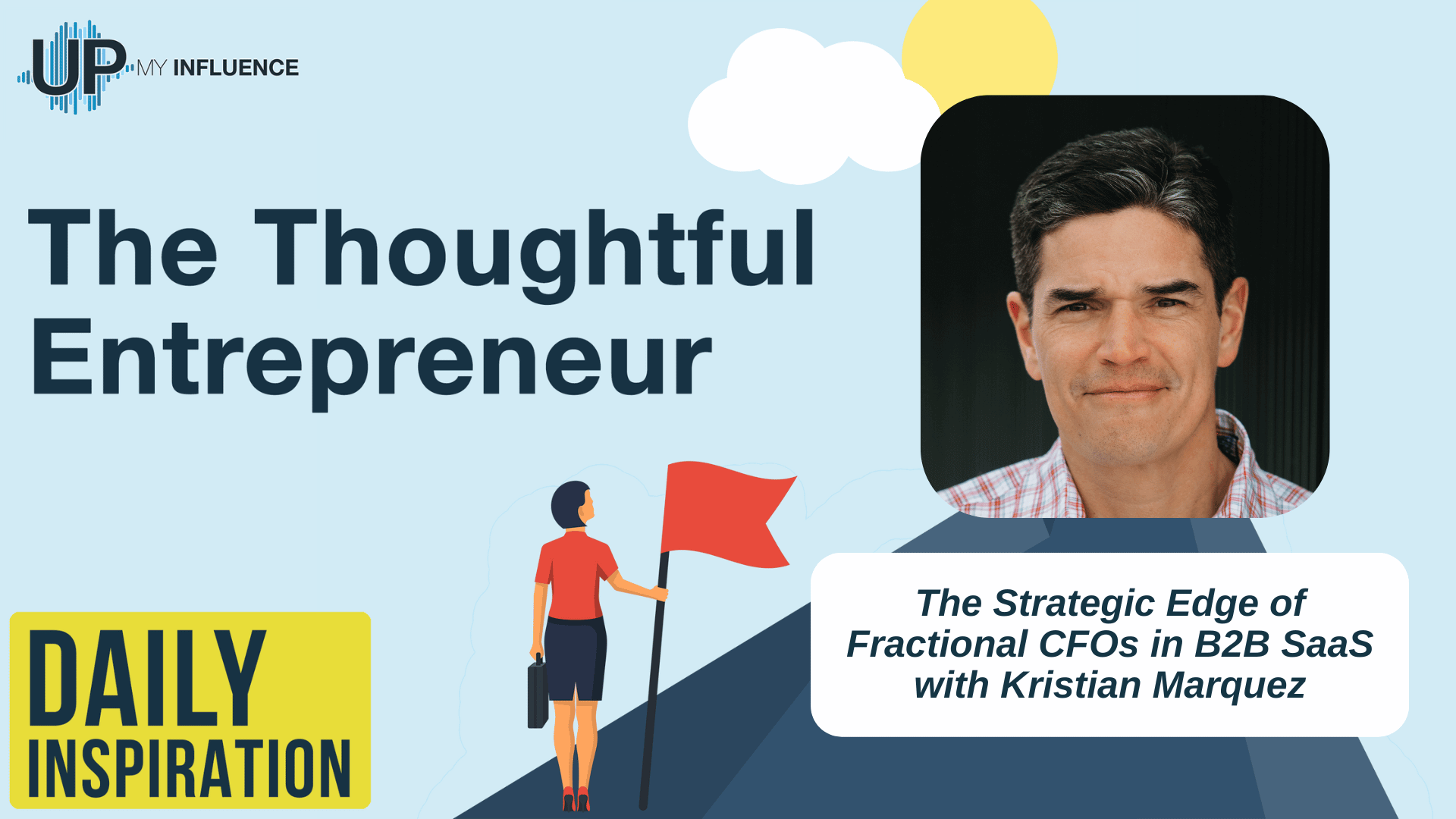THE THOUGHTFUL ENTREPRENEUR PODCAST
In this episode of the Thoughtful Entrepreneur, your host Josh Elledge speaks to the President & CEO of Finstrat, Kristian Marquez.

With his extensive experience at Finstrat Management, Kristian Marquez shed light on this innovative solution. A fractional CFO is a part-time financial expert who provides strategic financial guidance to companies without the commitment or cost of a full-time executive.
Kristian outlined that if a business is experiencing rapid growth, preparing for fundraising, or navigating complex financial challenges, it might be time to consider this strategic move. A fractional CFO can bring a wealth of knowledge and experience, helping to steer the company towards financial health and scalability.
Kristian highlighted the unique value Finstrat Management brings to founders and investors. Their team of experts provides financial oversight and assists in critical areas such as cash flow management, financial forecasting, and strategic planning. This support is crucial for B2B SaaS companies that operate in a highly competitive and fast-paced environment.
He also emphasized the importance of staying ahead of the curve, whether adopting new technologies or refining operational strategies. He pointed out that businesses that remain agile and informed are the ones that thrive.
Kristian believes that AI is not just a trend but a transformative force reshaping how we approach business operations and decision-making. He shared how AI can streamline processes, uncover insights, and drive efficiency, giving companies that leverage it a competitive edge.
Key Points from the Episode:
- Role of fractional CFOs in early-stage companies
- Focus on B2B SaaS industry
- Insights into the work of Finstrat Management
- Value provided to founders and investors
- Indicators that a company may be ready to bring in a fractional CFO
- Trends in business management
- Impact of artificial intelligence on businesses
About Kristian Marquez:
Kristian is the accomplished Founder, President, and CEO of FinStrat Management. This renowned outsourced financial department services firm provides accounting, finance, and reporting services for B2B SaaS companies, investors, RIAs, and VCs.
With a robust background, Kristian was pivotal in steering Inovalon through various executive and management positions, contributing significantly to its evolution from an early stage to a multi-billion IPO. Inovalon, a leading provider of cloud-based solutions in data-driven healthcare, benefited from Kristian's expertise.
His extensive career includes senior roles in accounting and investment management services and a commendable tenure as an officer in the United States Marine Corps.
A distinguished alumnus of the United States Naval Academy with a Bachelor of Science in General Engineering, Kristian has held the Chartered Financial Analyst (CFA) charter holder designation since 2004. His multifaceted experience and leadership make him a respected figure in the financial and business sectors.
About Finstrat:
FinStrat Management (FSM) is a premier outsourced financial operations services firm catering to B2B SaaS companies, investors, RIAs, and VCs.
Renowned for its industry expertise and cutting-edge software solutions, FSM delivers specialized reporting, comprehensive accounting, and financial functions, contributing to enhanced bottom-line performance for clients.
Distinguished by tailored financial operations teams, FSM is adept at addressing businesses' unique accounting, financial, and reporting requirements.
The firm prides itself on providing flexibility, seamless implementations, top-tier client support, and cost-effective pricing structures across all stages of growth.
FSM's commitment to excellence positions it as a strategic partner, empowering clients to navigate financial complexities while optimizing operational efficiency and fostering sustainable success in a competitive business landscape.
Apply to be a Guest on The Thoughtful Entrepreneur:
https://go.upmyinfluence.com/podcast-guest
Links Mentioned in this Episode:
Want to learn more? Check out Finstrat website at
Check out Finstrat on LinkedIn at
https://www.linkedin.com/company/finstratmgmt/
Check out Finstrat on Twitter at
https://twitter.com/finstratmgmt
Check out Finstrat on Facebook at
https://m.facebook.com/p/FinStrat-Management-100069837232752/
Check out Kristian Marquez on LinkedIn at
https://www.linkedin.com/in/kristianmarquez/
More from UpMyInfluence:
We are actively booking guests for our The Thoughtful Entrepreneur. Schedule HERE.
Are you a 6-figure consultant? I’ve got high-level intros for you. Learn more here.
What is your #1 Lead Generation BLOCKER? Take my free quiz here.
Want to learn more about all the podcasts managed by UpMyInfluence? Opt in here.

